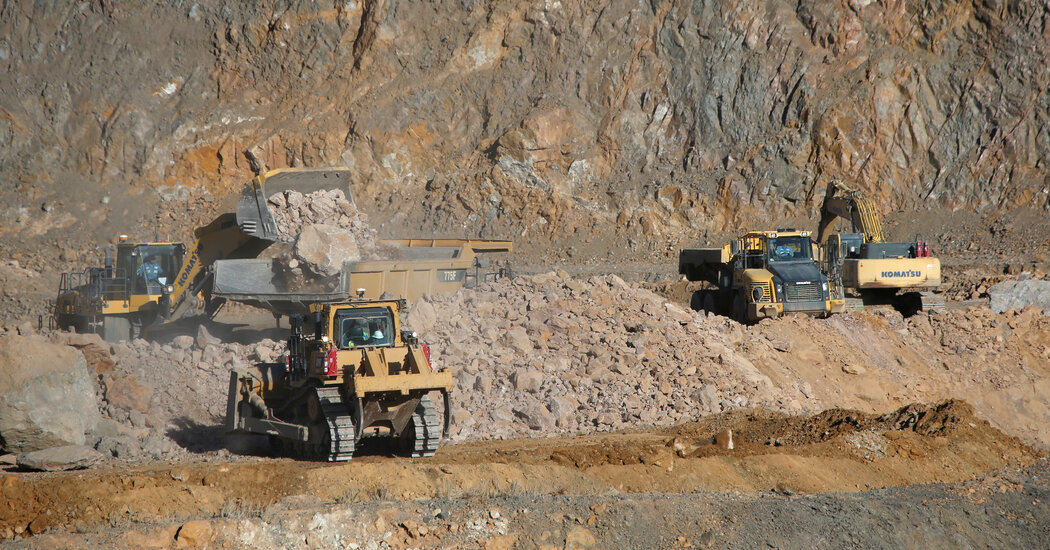According to the US Geological Survey, in 2020 the United States imported more than half of its supply of at least 46 minerals, and all of its supply of 17 of them. Many of the materials come from China, which is the world leader in lithium-ion battery production and known to cut exports of certain products during times of political tension, including rare earth minerals.
The Biden administration has warned that a reliance on foreign materials poses a threat to US security and pledged to expand domestic stockpiles of semiconductors, batteries and pharmaceuticals, among others. Although the United States has some untapped deposits of nickel, cobalt, and other crucial minerals and metals, mines and processing sites can take many years to develop. Two-thirds of the world’s total cobalt production is in the Democratic Republic of Congo, where Chinese companies owned or financed 15 of the 19 largest mines as of 2020.
But bipartisan support for expanding U.S. mining and processing of battery components has increased in recent years. In a March 11 letter to Biden, senators including Lisa Murkowski, an Alaska Republican, and Joe Manchin III, a West Virginia Democrat, proposed invoking the Defense Production Act to stop domestic production of lithium-ion components. accelerate ion battery materials. , in particular graphite, manganese, cobalt, nickel and lithium.
Todd M. Malan, head of climate strategy for Talon Metals, which is developing a nickel mine in Minnesota, said Washington had reached a bipartisan consensus on providing more support for domestic mineral extraction for electric vehicles “driven by dependency concerns.” from Russia and China for battery materials and the need for the energy transition.”
But some domestic developments may face opposition from environmentalists in Mr Biden’s own party.
Representative Raúl M. Grijalva, an Arizona Democrat who chairs the Committee on Natural Resources, said in a statement Wednesday that mining companies “made opportunistic advocacy efforts to advance a decades-old mining agenda that releases polluters and lets Americans bear the consequences.” . †
“Fast-tracking mining under outdated standards that endangers our public health, wilderness and sacred sites from permanent damage is simply not the answer,” he added.
Dionne Searcey reporting contributed.

